
Developer: Square Enix
Publisher: Square Enix
Platform: PC, PS4, PS5, Xbox One, Xbox Series XIS, Switch
Tested On: Switch
Crisis Core -Final Fantasy VII- Reunion – Review
Square Enix’s release schedule for the last months of 2022 may have been incredibly packed, with heavy hitters like Dragon Quest Treasures and Romancing Saga – Minstrel Song- Remastered, but the company decided to end the year with something that probably eclipses everything they’ve released recently. The highly anticipated Crisis Core -Final Fantasy VIII- Reunion is an enhanced remaster of one of the most memorable games on the PSP, and it allows players to dive deeper into the world of Final Fantasy VII, ahead of the upcoming release of Final Fantasy VII: Rebirth. Does Square Enix end 2022 with a bang or is it just a whimper?
Story
Even though Crisis Core acts as a prequel to Final Fantasy VII, it can be difficult to follow the plot if you haven’t at least played 2020’s Final Fantasy VII Remake (or the 2021 Intergrade version). This is because the game doesn’t waste any time setting up major plot points or introducing characters, instead opting to thrust you into the action from the get-go. Rather than focusing on beloved protagonist Cloud Strife, Crisis Core puts you in the shoes of the cocky mercenary Zack Fair. Working alongside the paramilitary organization SOLDIER, Zack defends the interests of the Shinra Electric Power Company. ‘But wait’, I hear you say, ‘aren’t Shinra and SOLDIER the bad guys?’. Of course, things aren’t so black and white in reality. Early on, Zack is confronted by Genesis, a former SOLDIER operative who now attempts to take down Shinra. This confrontation sets a series of life-changing events in motion for our protagonist.
The story that unfolds over the course of ten chapters sees Zack question his own beliefs, as he discovers sinister truths about those he considers friends and allies. We won’t delve too deeply into the plot, which involves genetic manipulation, cloning technology, and even aliens, as it’s probably best to go in blind. Rest assured, there are plenty of cutscenes present here that let you watch the story in all its gorgeous glory. These don’t just flesh out Zack’s own story, but also the backstories of familiar faces from Final Fantasy VII as well. The focal shift away from Cloud as the protagonist could have resulted in tenuous connections to the main game, but fortunately, Crisis Core actually really feels like it is setting things up in a meaningful way. The overarching plot is bizarre and over-the-top but by focusing on the characters themselves, Crisis Core manages to keep things coherent and even delivers the occasional emotional gut punch along the way.
Graphics
With Crisis Core available on pretty much every currently relevant platform, it shouldn’t come as a surprise that the Switch version offers the weakest visuals comparatively. Admittedly, this is still “just” a remaster of a 15-year-old PSP game, but the visuals have been given a serious coat of digital paint, with the game making use of assets first seen in Final Fantasy VII Remake on PS4. It has to be said that even on the Switch, the game looks fantastic. A lot of the heavy lifting is done by the pre-rendered cutscenes, and there are plenty of those, but the actual gameplay visuals also rank among the best that we’ve seen on the platform. While the game might be capped at 30FPS here, the frame rate remains stable, even during the most action-intense moments. Crisis Core is a shining example of what games on the Switch can look like if they are properly optimized for the platform.
Sound
It’s not just the visuals that received care either. Crisis Core brings along a newly arranged version of the soundtrack, and full voice acting in both Japanese and English. The voice performances are a bit of a mixed bag, with Caleb Pierce’s interpretation as Zack in particular ending up a bit grating in our humble opinion. Other cast members knock it out of the park, however, with Bill Millsap’s Angeal and Briana White’s Aerith being standout performances. The music is the expected highlight in Crisis Core’s soundscape, of course, and there isn’t a single track that disappoints here.
Gameplay
Being unfamiliar with the original PSP release of Crisis Core, we weren’t quite sure what to expect in terms of gameplay, especially since the game is considered a spinoff title rather than a main chapter of the Final Fantasy VII Remake trilogy. Given how beloved the original Crisis Core still is a decade-and-a-half after the original release, we knew we were in for a treat though, and what a treat it is: this is one of the best hack ‘n’ slash RPGs we’ve played recently. Granted, this may not be the hundred-hour RPG that you might be expecting from a game in the Final Fantasy series, with the main story being served up in bite-sized, hour-long chunks instead. The game’s runtime is padded out with additional side missions, which can be accessed through save points. These side missions typically take no more than a couple of minutes to complete, but there are literally hundreds of them. They are a welcome addition to a game whose biggest weakness is perhaps that the main campaign is all over too soon.
The majority of Crisis Core’s gameplay focuses on fast-paced hack ‘n’ slash combat. While the mechanics present here are far from the deepest and the most involved, there is something to be said about the high degree of accessibility. Most of the time, you’ll simply be mashing a single button to dish out damage with your massive sword, occasionally deploying an elemental or special attack, provided you have enough MP or AP at your disposal. The unique gimmick here is a mechanic called the Digital Mind Wave, or DMW for short. While you’re fighting enemies, the DMW is displayed as a slot machine of sorts, constantly spinning until it lands on a combination that gives you a random, temporary buff. It’s an interesting mechanic in theory, but the high degree of unreliability does mean that taking on some of the game’s tougher enemies relies on luck almost as much as it does on skill. The upside is that the DMW doesn’t require you to invest any attention or resources towards it. It’s just there, and if it happens to give you the right buff at the right time, who’s complaining? You can simply stick to your preferred fighting strategy instead of having to juggle several gameplay mechanics instead.
There was another aspect to the DMW that resonated less with us, however. The system is also tied to Zack’s stat and level growth, which means that you’ll only be able to really level up when the DMW decides that you’re allowed to. This is something that took some getting used to as it felt very arbitrary at first, but we never felt like we were really under-leveled for whatever the game tried to throw at us. Of course, it helps that Zack’s prowess as a fighter isn’t just tied to linear progression and that there is some degree of customizability here. Both by playing through the campaign and by tackling bonus missions, you’ll earn different types of materia. These can be equipped and in turn enhance corresponding spells, abilities, or stats. As you can equip and unequip them, you can tailor Zack towards specific objectives, which helps offset some of the restrictions tied to progress limited by the DMW. The fun doesn’t end there either: materia itself can be leveled as well, and different types of materia can be fused together to make new variations, further opening up loadout options.
While we enjoyed what Crisis Core had to offer in terms of combat, the game definitely showed its age elsewhere. The game’s setting, Midgar, is presented as a quasi-open world, but the world itself doesn’t really feel all that fleshed out, and exploration is hampered by the controls, which felt clunky and at times unresponsive. Part of Crisis Core’s flaws are tied to the design philosophies and limitations of the PSP, of course, and this is a remaster, not a full-on remake, so some wonkiness was to be expected, but this might not resonate with anyone not familiar with games from the early 2000s. We can’t outright compare this new version of Crisis Core to the original, so we can’t quite tell you which QoL changes were made here, but the game definitely feels authentic to a PSP game. In this regard, it’s perhaps best suited to be played on the Switch, unless you care about visual fidelity. With its bite-sized story chapters and short side missions, this is a fantastic game to play on the go. While we were playing in docked mode, however, the repetitive mission-based gameplay and overall pacing felt less suitable for lengthy sittings. It’s perhaps a bit of a contradiction then that we thought Crisis Core was still too short. The best way to enjoy the game is likely in short bursts, allowing you to savor the best of what it has to offer.
Conclusion
Crisis Core -Final Fantasy VII- Reunion is a fantastic game, provided you keep your expectations in check. The PSP design philosophy is noticeably present, so the game can’t be rightfully compared to its mainline Final Fantasy counterparts, and perhaps the game’s chapter- and mission-based structure doesn’t translate all that well to a home console experience. It feels right at home on the Switch though, where the portability factor does wonders. It also helps that this is a technical marvel on Nintendo’s platform, even though other platforms will offer a superior experience in terms of audiovisual presentation.
Crisis Core -Final Fantasy VII- Reunion - Review,1 Comment
Leave a Reply
You must be logged in to post a comment.

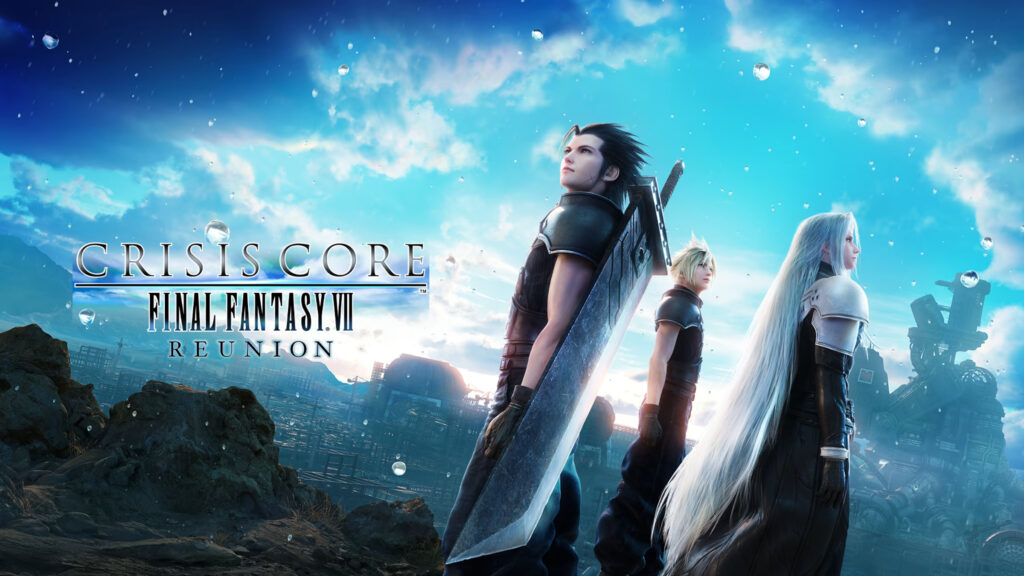
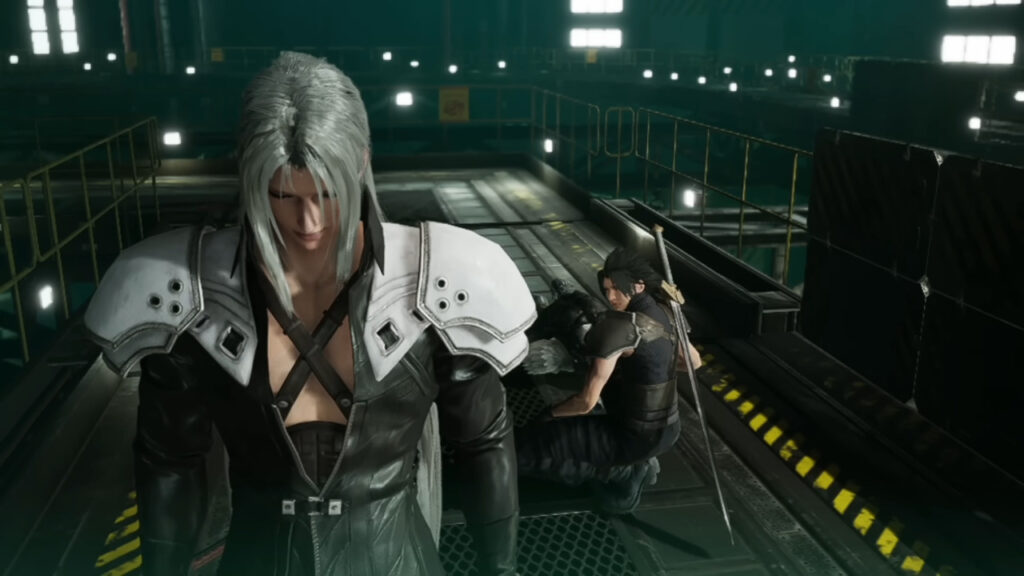
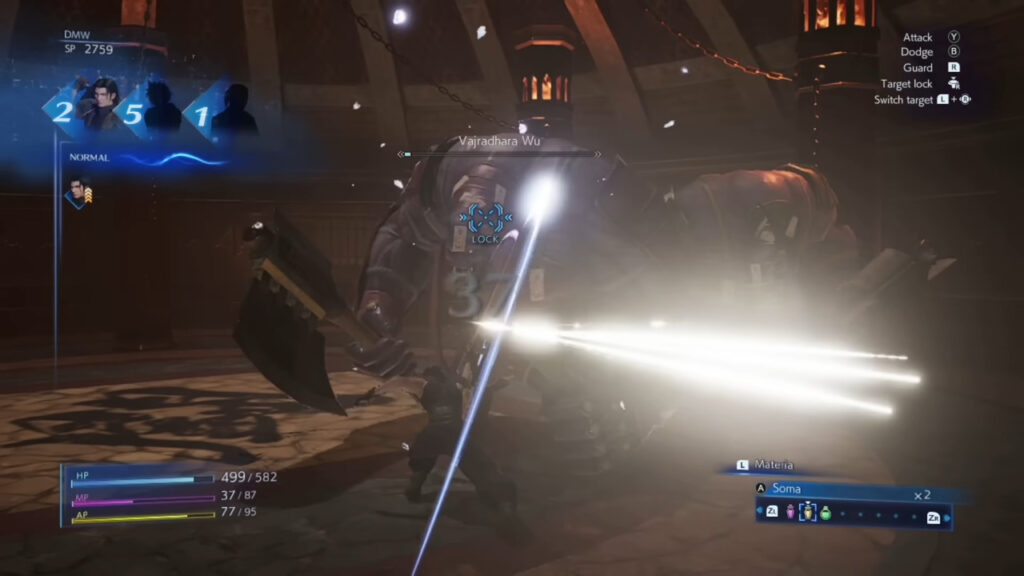
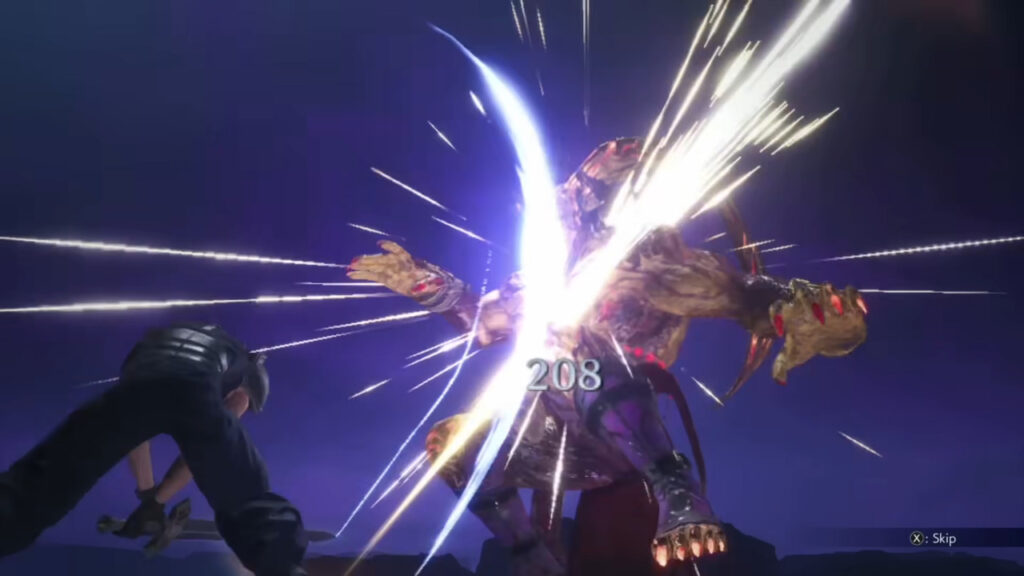
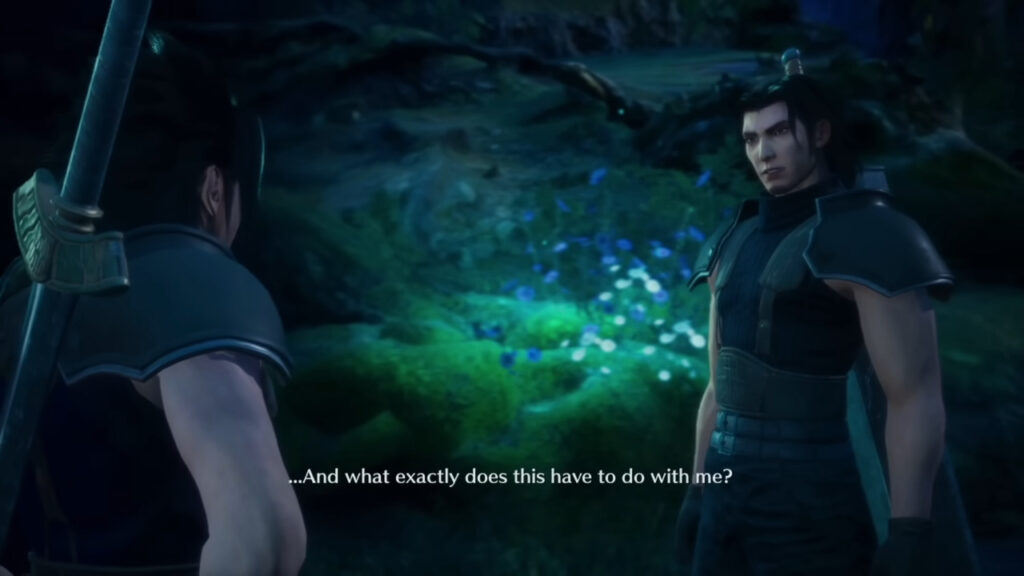


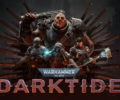

[…] you ever thought about cleaning the most iconic locations from Final Fantasy VII in PowerWash Simulator? Well, now you can! Square Enix has announced a new DLC called the Midgar […]